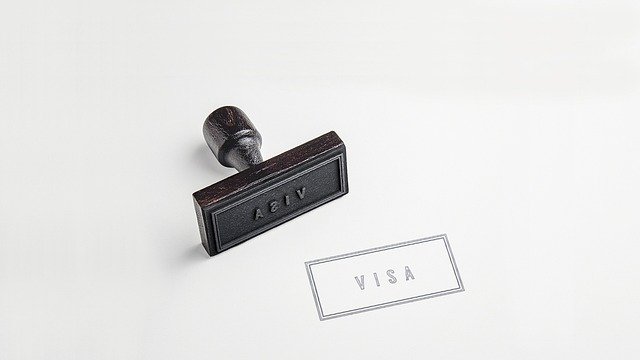How Foreign Entrepreneurs Navigate Business Registration in Japan
Japan offers a structured and transparent environment for establishing a business, attracting entrepreneurs from around the world. From choosing the appropriate legal structure to completing documentation in accordance with local regulations, the process involves several key steps. This overview outlines the typical registration flow, what foreign applicants should be aware of, and how language or visa requirements may influence the timeline.

What are the key steps involved in registering a company?
The steps involved in registering a company as a foreign entrepreneur in Japan begin with selecting your business structure and securing a registered address. You’ll need to prepare the Articles of Incorporation (Teikan), obtain notarization at a Japanese notary office, and deposit the required capital into a Japanese bank account. Following capital verification, you must register with the Legal Affairs Bureau (Homukyoku) and complete tax office registrations at both national and local levels. The entire process typically takes 2-4 weeks when all documentation is properly prepared and submitted.
How do sole proprietorships differ from corporations?
The differences between sole proprietorships and corporations under Japanese law are significant in terms of liability, taxation, and operational requirements. Sole proprietorships (kojin jigyo) offer simpler setup procedures and lower initial costs but provide no liability protection for personal assets. Corporations, particularly Kabushiki Kaisha (KK) and Godo Kaisha (GK), create legal separation between personal and business liabilities. KK structures require minimum capital of 1 yen but typically need substantial initial investment for credibility, while GK formations offer more operational flexibility with similar liability protection at lower administrative costs.
What documents and procedures are required for incorporation?
Required documents and procedures for company incorporation in Japan include a comprehensive documentation package starting with the Articles of Incorporation, which must be notarized and include company name, business purpose, capital amount, and registered address. Foreign entrepreneurs need passport copies, residence certificates (if available), and proof of registered address in Japan. The incorporation process requires capital deposit verification, official company seal (hanko) creation, and submission of incorporation applications to the Legal Affairs Bureau along with registration taxes of approximately 150,000 yen for KK or 60,000 yen for GK structures.
What challenges do non-residents typically encounter?
Common challenges non-residents face during business registration include securing a registered business address without Japanese residency, opening corporate bank accounts with limited local credit history, and navigating language barriers in legal documentation. Many foreign entrepreneurs struggle with understanding complex regulatory requirements, particularly regarding business purpose definitions that must be specific yet comprehensive enough for future operations. Additionally, the requirement for Japanese-language documentation and the need for local representative directors in certain business structures can create unexpected delays in the registration timeline.
How do visa status and residency affect setup timelines?
How business visas and residency status affect company setup timelines varies significantly based on your current legal status in Japan. Non-residents can establish companies but face longer processing times due to additional verification requirements and limited banking options. Those holding working visas may complete registration more efficiently but need to ensure business activities align with visa restrictions. Business Manager visas require pre-existing company registration, creating a circular dependency that typically necessitates initial setup on tourist status followed by visa application. The entire process can extend from 4-6 weeks for residents to 8-12 weeks for non-residents managing both incorporation and visa applications.
What unique advantages does Japan offer foreign entrepreneurs?
Japan provides exceptional support infrastructure for foreign entrepreneurs through government initiatives like the Japan External Trade Organization (JETRO) startup support programs and special economic zones with streamlined procedures. The country’s advanced digital infrastructure, reliable legal system, and strategic location for Asian market access create compelling advantages for international businesses. Many prefectures offer dedicated foreign entrepreneur support with multilingual assistance, reduced registration fees, and co-working spaces specifically designed for international startups. Additionally, Japan’s aging population and push for innovation create numerous market opportunities in technology, healthcare, and service sectors where foreign expertise is particularly valued.
What are the typical costs involved in business registration?
Business registration costs in Japan vary depending on your chosen corporate structure and service providers. Registration taxes represent the largest mandatory expense, while professional services and ongoing compliance create additional considerations for budget planning.
| Service Category | Typical Cost Range | Key Components |
|---|---|---|
| KK Registration Tax | 150,000 yen | Legal Affairs Bureau filing fee |
| GK Registration Tax | 60,000 yen | Legal Affairs Bureau filing fee |
| Notarization Fees | 50,000-52,000 yen | Articles of Incorporation certification |
| Professional Services | 100,000-300,000 yen | Legal/administrative support |
| Company Seal Creation | 10,000-30,000 yen | Official hanko set |
| Initial Capital Deposit | Variable | Minimum 1 yen, typically 1-10 million yen |
Prices, rates, or cost estimates mentioned in this article are based on the latest available information but may change over time. Independent research is advised before making financial decisions.
Planning your Japanese business venture
Successfully navigating business registration in Japan requires careful preparation, understanding of local requirements, and often professional assistance to manage complex procedures efficiently. While the process involves multiple steps and significant documentation, Japan’s transparent regulatory environment and growing support for foreign entrepreneurs make it an increasingly accessible destination for international business ventures. Consider your visa status, business structure preferences, and timeline requirements when planning your registration approach to ensure smooth establishment of your Japanese business operations.




